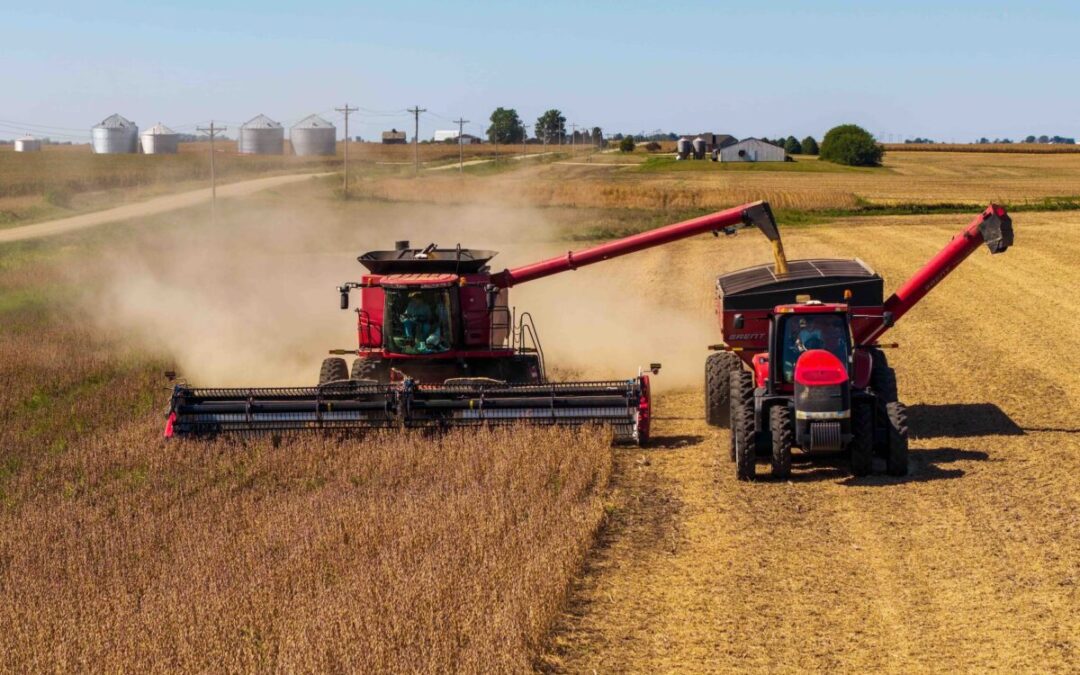
#image_title
US exports may become collateral damage in a faceoff over Hong Kong
In January, as reviews of 2019 headlines included the record number of Wisconsin dairy farms that had gone out of business, President Trump hailed a new trade agreement with China that included a commitment to buy $36.5 billion in U.S. agricultural goods in 2020.
Days later, the coronavirus epidemic began to infect China’s economy.
Then it became a pandemic that shuttered much of the U.S. economy. In the first 3 months of the year, the U.S. Department of Agriculture reported China had only purchased $3.35 billion in goods, according to Bloomberg News.
And now what remains may be sunk in the remnants of a faceoff over the political autonomy of Hong Kong and President Trump’s continued reliance on rhetoric focused on China’s handing of the outbreak as a means to distract from the administration’s early shortcomings.
Bloomberg reports the Chinese government has ordered a pause in American farm products, at least of soybeans and pork.
Wisconsin agricultural exports to China fell 28 percent in 2019 as a trade war rolled on and China responded with retaliatory tariffs against products coming from Wisconsin and elsewhere. And President Trump’s threats against other trading partners took their toll as Wisconsin farm exports fell 41 percent, nearly a quarter-billion dollars, to the state’s top 10 export markets including Canada, Mexico and South Korea, according to the International Agribusiness Center for the state Department of Agriculture, Trade and Consumer Protection.
Last July, Trump visited Milwaukee and said, in anticipation of a new China agreement, that things were already getting better.
“Some of the farmers are doing well… We’re over the hump,” he said.
Beijing is trying to push new “national security” rules that threaten, the New York Times reports, to undermine the independence given to Hong Kong’s judicial system and the civil liberties that were meant to be left in place after Great Britain gave up control of the city it had ruled from 1842 to 1997.
Last week it was reported that China had increased the amount of soybeans it purchased from Brazil, reaffirming worries that even if the Trump administration and Beijing de-escalate tensions, it may be too late for Wisconsin to convince Chinese buyers to switch back.
Support Our Cause
Thank you for taking the time to read our work. Before you go, we hope you'll consider supporting our values-driven journalism, which has always strived to make clear what's really at stake for Wisconsinites and our future.
Since day one, our goal here at UpNorthNews has always been to empower people across the state with fact-based news and information. We believe that when people are armed with knowledge about what's happening in their local, state, and federal governments—including who is working on their behalf and who is actively trying to block efforts aimed at improving the daily lives of Wisconsin families—they will be inspired to become civically engaged.


Retired veterinarian uses pasture for seasonally grazing dairy heifers and extra income
BEAR CREEK, Wisconsin – Earlier this year Jeff and Alex Wepner were looking for a place where their dairy heifers could grow and develop during the...

China has resumed U.S. soybean imports. It might not be enough for Wisconsin farmers
After a tense months-long standoff over tariffs, China has agreed to resume U.S. soybean imports in exchange for the U.S. easing up its tariff...

China is boycotting American soybeans. Wisconsin farmers will pay the price for it, trade group says
As China and the U.S. remain locked in a tense standoff over tariffs, Wisconsin soybean farmers have found themselves in the crossfire of the...

In Portage County, residents fight for a say in local government
One of my favorite photos of my friend Jason Dunkin is a selfie he took where he’s grinning ear to ear. He’s sitting across from his local city...





